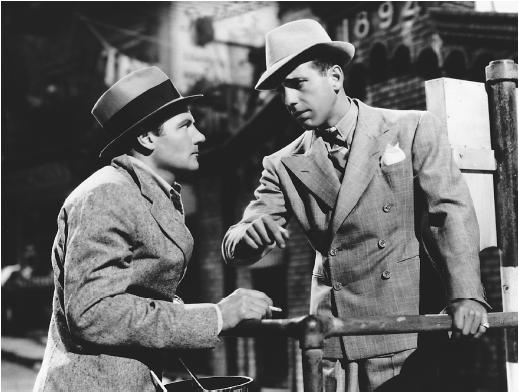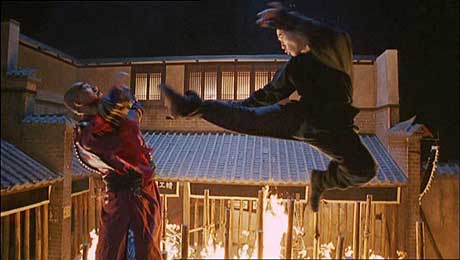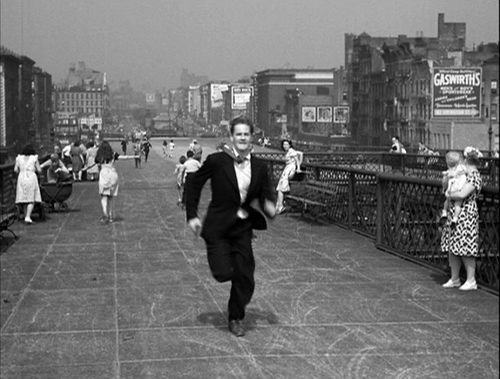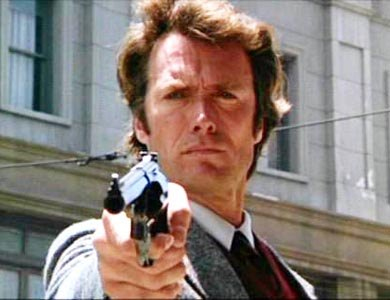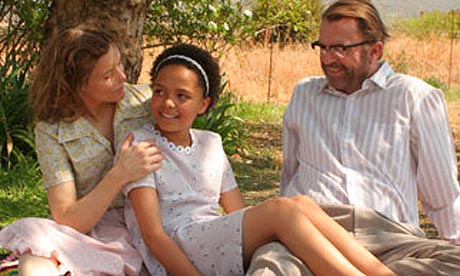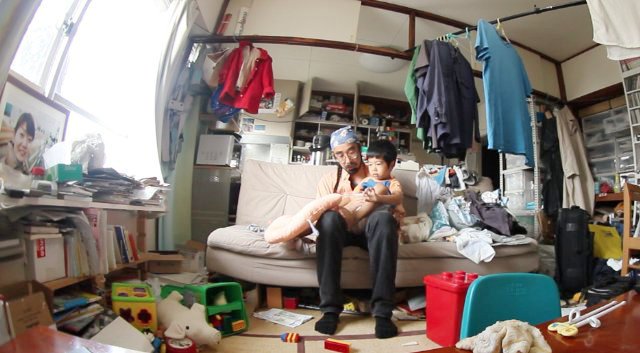Manhattan Murder Mystery (1993) directed by Woody Allen
"Too much Double Indemnity."
Manhattan Murder Mystery borrows a bit from Rear Window in that the protagonist doesn't see the suspect actually commit a murder but is convinced that he is guilty nonetheless. Carol (Diane Keaton) is a bored housewife with an active imagination. When the neighbor's wife suddenly dies of a heart attack she grows suspicious of the husband, Mr. House. What does she base her suspicions on? He seems in too good spirits. He has an urn full of ashes in his kitchen. He leaves his apartment at 1:00 in the morning. None of these alone would seem strange at all except after you've seen one too many viewings of Double Indemnity.
Carol becomes obsessed with this supposed case and it appears to her husband Larry (Woody Allen) and the viewer that she is on the verge of a nervous breakdown. I was actually kind of bothered by Carol's behavior because she is so irrational and paranoid in these scenes. I would have loved nothing better than for her to be completely wrong and that there be a perfectly good explanation for everything as would be the case 999 times out of 1000 in real life. I actually even thought the film might go in this direction because the first half doesn't actually seem to be about uncovering a mystery at all but in taking a look at the struggling relationship between Carol and Larry. Much of the film deals with Carol and Larry operating at different wavelengths; she is adventurous and energetic while he is neurotic and mild mannered. It is obvious that if Carol were completely happy she would never bother looking for a murder that isn't there. But of course there really is more to Mr. House than meets the eye (or is there?) and Carol uncovers more and more. One thing is certain, either she will come out of this looking like Sherlock Holmes or laying in a psychiatrist's chair.
The film picks up steam and becomes a full blown mystery thriller and we never really know how everything will be explained till the very end. But even with the murder mystery going on, Allen still maintains the light hearted comedic elements and observations. Carol and Larry, despite being knee deep in a potential murder, are still struggling to answer their midlife marriage funk. Allan plays his typical nervous neurotic self and Diane Keaton has the manic energy she displayed in Annie Hall. The couple involve their friends in the matter and in one of the better scenes they try to figure out how and why Mr. House might have murdered his wife over dinner with other patrons and waiters eavesdropping on their conversation. In a moment of irony, when the other woman whom Carol is jealous of comes up with a compelling idea, Carol shoots it down citing how many fallacies her theory has.
There were a couple scenes I particularly liked. One is when Carol and Larry are walking around the fountain in the park discussing the case. The camera slowly follows the couple as they circle the fountain. I thought that was pretty cool looking shot. The climax, while being kind of cliche, is a perfect fit precisely because it is sort of cliche.
I hope everyone had a good 2011; hopefully 2012 will be even better.
Grade: B
"Too much Double Indemnity."
Manhattan Murder Mystery borrows a bit from Rear Window in that the protagonist doesn't see the suspect actually commit a murder but is convinced that he is guilty nonetheless. Carol (Diane Keaton) is a bored housewife with an active imagination. When the neighbor's wife suddenly dies of a heart attack she grows suspicious of the husband, Mr. House. What does she base her suspicions on? He seems in too good spirits. He has an urn full of ashes in his kitchen. He leaves his apartment at 1:00 in the morning. None of these alone would seem strange at all except after you've seen one too many viewings of Double Indemnity.
Carol becomes obsessed with this supposed case and it appears to her husband Larry (Woody Allen) and the viewer that she is on the verge of a nervous breakdown. I was actually kind of bothered by Carol's behavior because she is so irrational and paranoid in these scenes. I would have loved nothing better than for her to be completely wrong and that there be a perfectly good explanation for everything as would be the case 999 times out of 1000 in real life. I actually even thought the film might go in this direction because the first half doesn't actually seem to be about uncovering a mystery at all but in taking a look at the struggling relationship between Carol and Larry. Much of the film deals with Carol and Larry operating at different wavelengths; she is adventurous and energetic while he is neurotic and mild mannered. It is obvious that if Carol were completely happy she would never bother looking for a murder that isn't there. But of course there really is more to Mr. House than meets the eye (or is there?) and Carol uncovers more and more. One thing is certain, either she will come out of this looking like Sherlock Holmes or laying in a psychiatrist's chair.
The film picks up steam and becomes a full blown mystery thriller and we never really know how everything will be explained till the very end. But even with the murder mystery going on, Allen still maintains the light hearted comedic elements and observations. Carol and Larry, despite being knee deep in a potential murder, are still struggling to answer their midlife marriage funk. Allan plays his typical nervous neurotic self and Diane Keaton has the manic energy she displayed in Annie Hall. The couple involve their friends in the matter and in one of the better scenes they try to figure out how and why Mr. House might have murdered his wife over dinner with other patrons and waiters eavesdropping on their conversation. In a moment of irony, when the other woman whom Carol is jealous of comes up with a compelling idea, Carol shoots it down citing how many fallacies her theory has.
There were a couple scenes I particularly liked. One is when Carol and Larry are walking around the fountain in the park discussing the case. The camera slowly follows the couple as they circle the fountain. I thought that was pretty cool looking shot. The climax, while being kind of cliche, is a perfect fit precisely because it is sort of cliche.
I hope everyone had a good 2011; hopefully 2012 will be even better.
Grade: B





